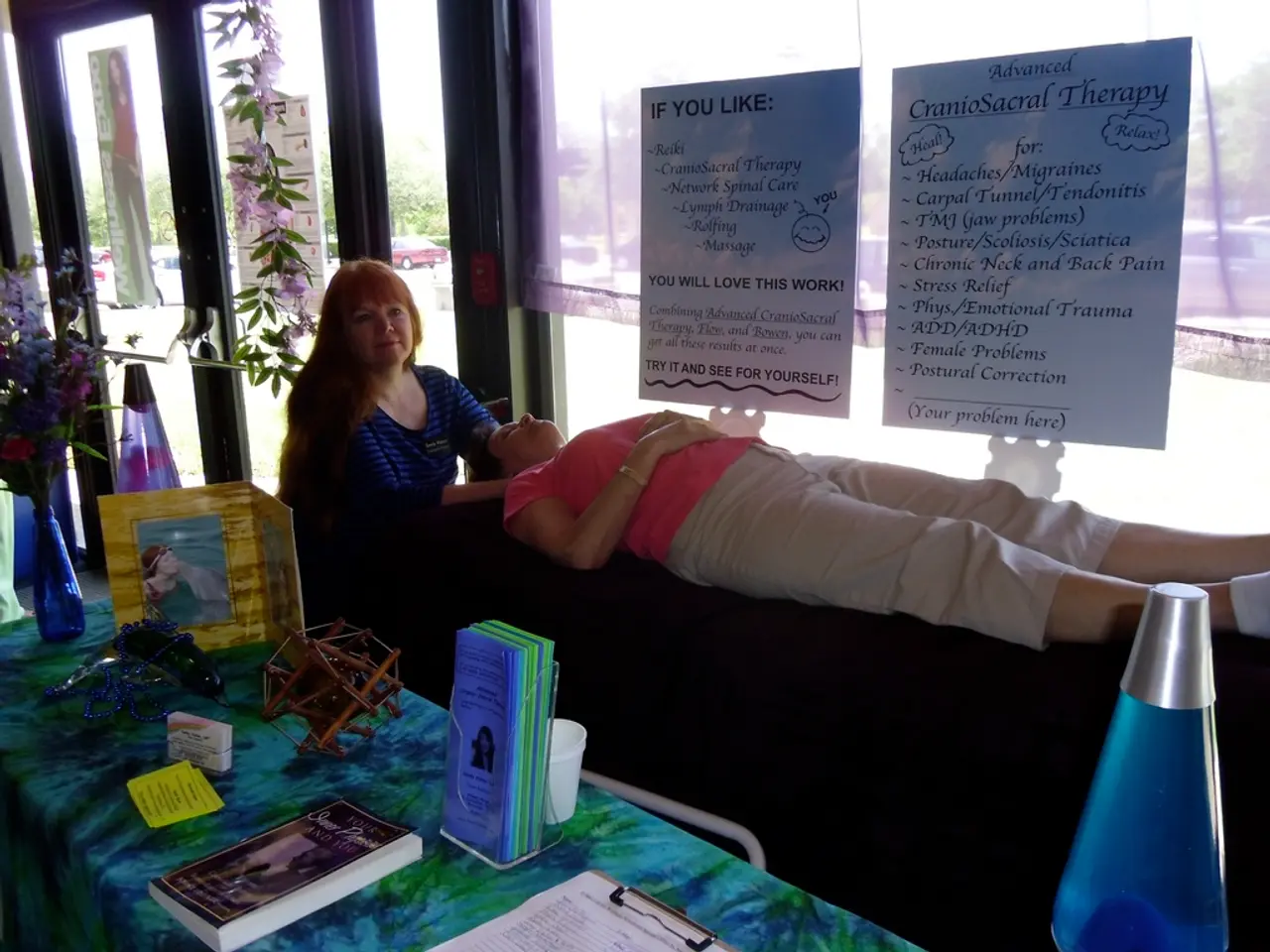Age restriction in starting certain activities or pursuits
In the pursuit of maintaining good health and happiness, many seniors are adopting consistent self-care routines. These routines, which range from physical activities to mental stimulation, have been proven to significantly improve physical and mental health.
A healthy diet and staying hydrated form the foundation of these self-care routines. A nutritious, balanced diet rich in fruits, vegetables, lean proteins, and whole grains supports immune function, digestion, and energy levels. Staying hydrated is equally important for cognitive and physical health.
Regular physical activity is another crucial component. Engaging in moderate-intensity aerobic exercise for at least 30 minutes a day, five days a week, helps maintain muscle and bone strength, improves cardiovascular health, and can prevent or delay chronic diseases. Strength training and balance exercises also reduce fall risk and maintain mobility.
Mental activity is equally essential. Activities like memory games, puzzles, reading, and creative arts help keep the brain active, potentially delaying cognitive decline. Social interaction—through group activities, clubs, or volunteering—also benefits mental health and reduces feelings of isolation.
Consistent routines, with flexibility, provide structure and reduce anxiety, especially for those with cognitive impairments. Establishing daily routines such as consistent meal times, regular sleep schedules, and habitual leisure activities reduces stress and promotes better sleep.
Social engagement is another vital aspect of self-care. Participating in group sports, walking clubs, senior centers, or faith-based communities fosters connection, combats loneliness, and can improve mood and emotional well-being.
Adequate sleep and stress management are also crucial. Maintaining a regular bedtime routine, avoiding stimulants late in the day, and practicing relaxation techniques promote restful sleep and reduce stress.
Adaptive and preventive health practices are vital for older adults. Regular medical checkups, vaccinations, and screenings are crucial for early detection and management of health issues.
These long-term self-care routines offer numerous benefits. Enhanced physical health can prevent or manage chronic conditions, improve mental and cognitive function, and promote greater independence and quality of life. Reduced stress and better sleep contribute to overall well-being, while stronger social connections decrease loneliness and support mental health.
For older adults with dementia, routines should be consistent yet flexible, incorporating familiar activities and visual cues to reduce confusion and agitation. Personalized activities can maintain a sense of purpose and engagement as abilities change.
In conclusion, long-term self-care is most effective when routines are personalized, adaptable, and enjoyable, promoting both physical and mental health as people age. Self-care is a lifelong experience, not a destination, creating practices that grow with you. People can grow and benefit from self-care at any age with conscious efforts and positive thinking.
Women's health and mental health are equally important aspects of self-care. Incorporating women's health practices such as regular gynecological check-ups and breast self-examinations can help ensure overall wellness. Furthermore, prioritizing mental health by engaging in stress-reducing activities like mindfulness or therapy can help maintain cognitive function and emotional well-being.




